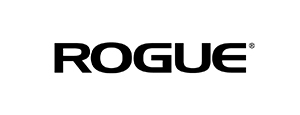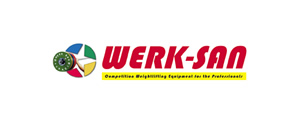Who to Watch in Anaheim
The 2017 IWF World Weightlifting Championships are ready to begin! Anaheim is ready to welcome the world – and for nearly 400 athletes, the dream of a golden winter in California is closer than ever, with emerging names and nations set to challenge the established order at the IWF World Championships. Athletes from 72 countries will arrive in Anaheim, and several are defending Olympic champions from last year’s Games in Rio, including Lasha Talakhadze, Sohrab Moradi, Sopita Tanasan, Hsu Shu-ching, Sukanya Srisurat and Kianoush Rostami. The Men [caption id="attachment_20217" align="alignleft" width="220"] Lasha Talakahadze - Rio 2016[/caption] [caption id="attachment_20531" align="alignright" width="250"] Kianoush Rostami - Rio 2016[/caption] Georgian Talakhadze, who is also defending his 2015 world title in the +105kg competition, will face stiff competition from Behdad Salimi, who is seeking to recover from a disappointing Olympics just over a year ago. Salimi, representing Iran, claimed golds at the 2010 and 2011 IWF World Championships and also topped the podium at the London 2012 Olympics before falling short of his great superheavyweight rival in Rio in an epic contest in the snatch. Salimi has previously held the world record in the snatch on two occasions – before being surpassed earlier this year by Lasha Talakhadze, who lifted 217kg at the European Championships in April. Salimi’s best clean and jerk in international competition is 255kg, but a recent 260kg lift in training suggests that another enthralling battle with Talakhadze – who was filmed recently snatching 220kg – is on the cards in Anaheim, especially with the likes of Brazil’s Fernando Reis and Estonia’s Mart Seim also set to challenge. Salimi’s compatriot Sohrab Moradi will also be going for gold in the 94kg category at the Anaheim Convention Center following his Olympic gold last year. The Women In the women’s competitions, the 53kg category is shaping up to be an intriguing contest. Hsu Shu-ching of Chinese Taipei is defending her world title and consecutive Olympic golds. However, Sopita Tanasan is moving up to 53kg having won gold for Thailand in Rio in the 48kg category and will provide fierce competition. [caption id="attachment_19541" align="alignleft" width="239"] Hsu Shu-ching - Rio 2016[/caption] [caption id="attachment_19531" align="alignright" width="267"] Sopita Tanasan moves up to 53kg[/caption] Also competing for Thailand will be 22-year-old Sukanya Srisurat, who will be seeking to stay on top in the 58kg competition following her Olympic gold in the same category last year. Meanwhile Spain’s Lidia Valentín, who has picked up medals at three consecutive Olympic Games – including a gold at London 2012 – will be looking to follow up her third European Championships gold earlier this year with a first world title in the 75kg competition. The Home Nation Team USA is fielding a strong selection of athletes, with home hopes resting on the likes of Mattie Rogers, Sarah Robles, Harrison Maurus, and CJ Cummings. Cummings, one of only seven athletes at the World Championships to have been born this century, is hotly tipped in the 69kg competition, while Maurus will compete in the 77kg category. Robles, in the +90kg category, picked up a bronze medal in Rio and is considered to be a serious contender in Anaheim. USA Weightlifting will certainly be hoping for some home success with the USA having not celebrated a male or female world champion in weightlifting since 1969 or 1994, respectively. -- Stay up-to-date with the 2017 International Weightlifting World Championships throughout the week on IWF social channels. Follow us on: Facebook Instagram Twitter














